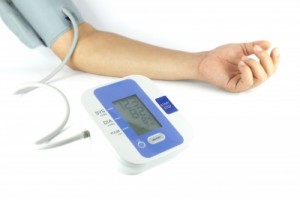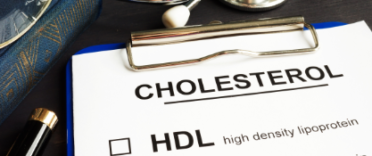
The simple answer is yes you can. An insurance company is likely to ask you a few extra questions, which we will cover in more detail below and so long as you know the answer to those questions then you are likely to be offered some form of cover. The cost of the cover (referred to as the premium) is likely to be affected by how you answer those questions. An insurance company may decide to increase the premium from the outset (referred to as a 'loading' or 'rating') if they deem you to be a higher risk.
In this article we answer the following questions: What is high blood pressure? What causes high blood pressure? How much extra will an insurance company charge for high blood pressure and how you can get the cheapest and best life insurance quotes if you have high blood pressure? You can jump straight to how to get the cheapest life insurance quotes if you have high blood pressure section by clicking the link.
What is high blood pressure and how does it affect life insurance?
High blood pressure (often referred to as hypertension) varies considerably in its severity and cause, so can affect your life insurance cover in various ways. Blood pressure is recorded using two numbers. The higher number is referred to as systolic pressure and is the force that your heart pumps blood around your body. The lower number is referred to as diastolic pressure and is the resistance of the blood flow in the blood vessels.
There are officially two types of hypertension, the most common being primary hypertension which affects 90/95% of sufferers. The causes are non-specific but can include diet, salt intake, being overweight & drinking too much alcohol. As you get older the combined effects of these can increase your chances of being Hypertensive. Certain ethnic groups also have a higher chance, and your own family history can also be a factor.
Secondary hypertension is where there is an underlying cause, for example, kidney failure. In these cases it is more likely to be the underlying cause that will affect your life insurance policy application. These complications would normally mean your hypertension would be treated as if it was severe or uncontrolled.
What causes high blood pressure and how can I reduce it?
High blood pressure is often caused by one or more of the following:
- high levels of salt in your diet
- high levels of caffeine and alcohol
- smoking
- lack of exercise
- lack of sleep
- being overweight
In order to reduce your blood pressure you should consider eating a healthy diet, stop smoking and make sure you maintain a healthy weight, get plenty of exercise and ensure you are well rested.
What is considered high blood pressure?
Blood pressure readings are usually quoted as one number over another e.g. 120 over 80. This is usually written down as 120/80.
A “normal” blood pressure reading is somewhere between 90/60 & 120/80 for an average adult. If your own reading is slightly higher, in the range 120/80 & 142/88 then you are in the stage of Pre-Hypertension. This is usually nothing to worry about but should be a warning to keep an eye on things, and maybe make some lifestyle changes.
Anything over 142/88 is classified as high blood pressure and may require some form of treatment. If either number is higher (e.g. 160/90 or 140/100) this is also a problem. Staying below this range is definitely better for your overall health. High blood pressure increases the risk of heart attack, heart disease & stroke and can also cause kidney disease.
If your raised blood pressure was only very recently diagnosed you may find that if you make a life insurance application the decision will be deferred for up to 6 months. This is so that the underwriters can see whether your treatment is stabilising the condition. If you have been diagnosed more than 12 months ago then this would not usually apply.
What information do I need to apply for life insurance if I have high blood pressure?
- Approximate date of diagnosis of high blood pressure/hypertension
- Your latest blood pressure reading, and the date it was taken. Ideally, this should be within the last 3 months or so
- Full details of any medication, and how long you have been taking it
- Details of any additional complications (e.g. kidney issues, high cholesterol levels)
What are the different types of high blood pressure?
While high blood pressure is often referred to as primary or secondary hypertension, an insurance company will generally break your condition down into four categories. The categories are generally classified as 'well controlled', 'moderately controlled', 'poorly controlled' and 'uncontrolled'. We will look at each category in detail below and explain how they may impact your life insurance premiums.
Well controlled high blood pressure (mild hypertension)
If you have infrequent symptoms and your blood pressure is well controlled by medication you can often get life insurance at standard rates (i.e. your premiums are the same as someone not suffering from high blood pressure)
This could change if you are overweight, have high cholesterol or if you smoke. If any of these additional factors are present you could expect to receive a medical loading on your premium of between 50% & 75%.
| Age | Well controlled BP | Medication | Insurer Decision |
| Any Age | Systolic and diastolic readings should be under 142/88 | None | No increase to premiums |
Moderately controlled high blood pressure (hypertension)
If you have regular symptoms, but these are also well controlled then you can expect to receive an increase to your premiums of between + 50% and + 75%.
If you are overweight, smoke or have raised cholesterol you could expect to receive an additional increase to your life insurance premiums of somewhere between +100% and + 150%.
| Age | Moderately controlled BP | Medication | Insurer Decision |
| Up to age 45 | Systolic and diastolic readings should be under 152/93 | No more than 2 types of medication | Increase of up to 50%. Eg. £20 premium will rise to £30 |
| Up to age 45 | Systolic and diastolic readings should be under 152/93 | No more than 3 types of medication | Increase of up to 75%. Eg. £20 premium will rise to £35 |
| Over 45 | Systolic and diastolic readings should be under 152/93 | No more than 2 types of medication | Potential for no increase. Could receive an increase of up to 50%. Eg. £20 premium will rise to £30 |
| Over 45 | Systolic and diastolic readings should be under 152/93 | No more than 3 types of medication | Potential for no increase. Could receive an increase of up to 75%. Eg. £20 premium will rise to £35 |
Poorly controlled blood pressure (severe hypertension)
If you have higher systolic and diastolic readings (above 152 and 93), you are on 2 or 3 types of medication and you have no other health factors then you may receive an increase of up to 75%. If you have continuous symptoms, maybe including hospital admissions, or if your high blood pressure is not being properly controlled you can expect to receive an increase of + 175% or more, or you may even be declined life insurance.
This will be made worse if you smoke, are overweight or suffer from raised cholesterol. If any of these additional factors are present the insurance company is likely to decline to offer you life insurance.
| Age | Poorly controlled BP | Medication | Insurer Decision |
| Up to age 45 | Systolic and diastolic readings are generally above 152/93 | No more than 2 types of medication | Increase of up to 50%, but could be postponed. Eg. £20 premium will rise to £30 |
| Up to age 45 | Systolic and diastolic readings are generally above 152/93 | No more than 3 types of medication | Increase of up to 75% but could be postponed. Eg. £20 premium will rise to £35 |
| Over 45 | Systolic and diastolic readings are generally above 152/93 | No more than 2 types of medication | Potential for no increase, but could also be postponed. Individually assessed |
| Over 45 | Systolic and diastolic readings are generally above 152/93 | No more than 3 types of medication | Increase of up to 75% but could be postponed. Eg. £20 premium will rise to £35 |
Uncontrolled high blood pressure
There are times when an insurance company may not be able to offer cover. If your blood pressure readings are excessively high then your application may be postponed until you can bring your blood pressure readings down to a controlled level. In some circumstances where there has been no improvement and readings are erratic you may be declined altogether. But don't despair, there are specialist insurers that may still offer cover, just because you have been declined with one insurer, it doesn't mean you will be declined with all insurers. We explain below how to guarantee the best life insurance quotes by speaking to an independent specialist.
| Age | Uncontrolled BP | Medication | Insurer Decision |
| Any Age | Systolic and diastolic readings are above 177/106 | Postpone or decline |
What is insurance underwriting?
The cost of life insurance is initially decided by a team of actuaries, employed by a life insurance company; they use statistics in order to predict the insurance risk of any individual based on a combination of factors. Once an application is received, a life insurance company will use an underwriter in order to assess the risk that a particular applicant poses. They will look for additional risk factors, such as high blood pressure. If there is an additional risk, they may decide to apply an increase (often referred to as a rating or loading).
Can an insurer increase my life insurance premiums after I have taken the cover out?
No. If the insurance company has underwritten your application and you have accepted those terms (whether it was increased or not), that is the premium you will pay throughout the term of the policy. Check out our article 'Do I need to tell my insurance company about my health after I take out a policy' for more information.
How to guarantee the best life insurance premiums if you suffer from high blood pressure
We've given you some guidelines above on how high blood pressure can impact a life insurance application and whether you should expect to receive an increase to your premiums. These are however just guidelines and insurers will regularly change their stance on how they underwrite applications. The best way to guarantee the cheapest life insurance quotes if you suffer from high blood pressure is to speak to an independent specialist*. Not only will they be able to speak to all of the insurance companies on your behalf, but they will also be able to help complete the application forms and liaise with your doctor's surgery should additional information be required. We have personally vetted the services of a specialist insurance broker*, which specialises in finding the most suitable cover for those with medical conditions such as high blood pressure.
To speak to an adviser, with no obligation to take things further, just fill in the form via the above link. The firm employs strong ethics and will only ever offer a policy if it is the best policy to suit your needs. If they are unable to offer a suitable policy or are unable to save you money on your current policy, they will simply recommend that you stick with what you have.
If a link has an * beside it this means that it is an affiliated link. If you go via the link, Money to the Masses may receive a small fee which helps keep Money to the Masses free to use. The following link can be used if you do not wish to help Money to the Masses and do not wish to qualify for the cashback referred to in the article - LifeSearch



